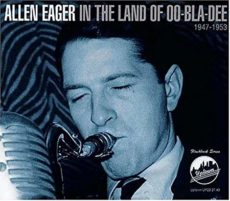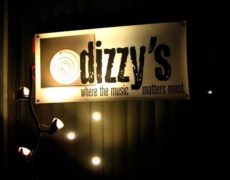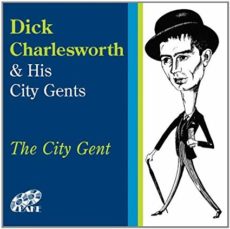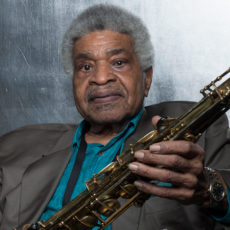
Daily Dose Of Jazz…
Allen Eager was born in New York City on January 10, 1927 and grew up in the Bronx. He could read at the age of three, learned to drive at the age of 9 with the help of his mother after she caught him driving a garbage truck near the hotels that his parents owned in the Catskill Mountains. He took clarinet lessons with David Weber of the New York Philharmonic at the age of 13. He briefly played with Woody Herman at the age of 15, and at the same age, he took heroin for the first time.
By sixteen he was playing in Bobby Sherwood band, then went on to play with Sonny Dunham, Shorty Sherock, and Hal McIntyre. Eager was then with Herman again for a year in 1943, Tommy Dorsey, and Johnny Bothwell in 1945. After World War II he became a regular on the 52nd Street in New York City leading his own ensemble from 1945–47. His recording debut as a leader was for Savoy Records in 1946 with pianist Ed Finckel, bassist Bob Carter, and drummer Max Roach.
Influenced by Lester Young, his playing style on tenor saxophone was, along with contemporary saxophonists Zoot Sims, Stan Getz, Al Cohn and others. Adopting the musical forms pioneered in bebop, he also adopted the drug dependency of a lot of the bebop players in the 1940s. Allen was a member of several bands led by black musicians including Coleman Hawkins, Fats Navarro, Tadd Dameron and Charlie Parker and recorded with trumpeter Red Rodney for Keynote Records in 1947.
He would go on to play with Gerry Mulligan, Terry Gibbs in 1952, and shortly after with Buddy Rich. He then briefly abandoned music and drugs, becoming a ski and horse riding instructor. In the Fifties, he returned to again led his own ensemble as a saxophonist, frequently playing with Howard McGhee. He lived in Paris for a couple of years, then returned to the U.S. in 1957, Eager recorded The Gerry Mulligan Songbook under Mulligan’s leadership, which was his last recording for 25 years.
After this, he essentially retired from jazz, pursuing skiing, competitive auto racing, and LSD experiments with Timothy Leary. In the late Sixties he settled in Florida with his family, played with Frank Zappa in the 1970s, and in 1982 Eager made a comeback with an album for Uptown Records, entitled Renaissance. He toured with Dizzy Gillespie in 1983, and with Chet Baker. Tenor and alto saxophonist Allen Eager passed away from liver cancer on April 13, 2003 in Daytona Beach, Florida.
More Posts: history,instrumental,jazz,music,saxophone

The Jazz Voyager
Southern California seems to be the next destination for the Jazz Voyager as he lands in San Diego and heads off to his hotel before he discovers Dizzy’s at Arias Hall and catches a Friday performance of Peter Spague and Sinne Eeg. Located at 1717 Morena Boulevard, Bay Park 92110, this venue is spare, inexpensive and comfortable.
Operated since 2000, for the past two decades, Chuck Perrin has refocused the city’s sputtering jazz scene and is fast becoming a destination for original performance of all kinds. There’s no bar, no restaurant, no blaring televisions ~ just music. And instead of talking, patrons listen.
More Posts: adventure,club,genius,jazz,museum,music,preserving,restaurant,travel,voyager

Daily Dose OF Jazz…
Carson Raymond Smith was born on January 9, 1931 in San Francisco, California and his older brother, Putter, was also a notable bassist & composer. His early work was in West Coast jazz, playing with Gerry Mulligan, Chet Baker, Russ Freeman, and Chico Hamilton and recorded with Clifford Brown, Dick Twardzik, and Billie Holiday at Carnegie Hall through the Fifties.
In 1959, he toured with Stan Kenton, then in 1960 recorded with Charlie Barnet. 1962 saw Carson moving to Los Angeles, California and playing with Charlie Teagarden and Lionel Hampton. He toured Japan with Georgie Auld in 1964.
Later in the 1960s, he played with Buddy Rich, Arno Marsh, and Carl Fontana. He held a longtime residency at the Four Queens Hotel in Las Vegas, where he accompanied visiting musicians such as Art Farmer, Lew Tabackin, Zoot Sims, and Chet Baker. Double-bassist Carson Smith passed away on November 2, 1997, in Las Vegas, Nevada.
More Posts: bass,history,instrumental,jazz,music

Daily Dose Of Jazz…
Dick Charlesworth was born Richard Anthony Charlesworth on January 8, 1932 and brought up in Sheffield. He attended King Edward VII School and at age 16 he became a clerk in the Ministry of Labour and in due course was transferred to London. He bought a clarinet and started playing jazz as a hobby in 1952-53.
Entirely self-taught, Dick became good enough to play saxophone and clarinet in a dance band and performed with jazz bands in south London including Jim Weller’s Jazzmen. While still working his day job, 1956 saw him form his first group, Dick Charlesworth’s Jazzmen and winning the South London Jazz Band Championship in 1957. The group was signed by the Melodisc label, recorded an EP in 1957 and produced an album for Doug Dobell’s 77 Records.
Leaving the Civil Service in 1959 he became a professional musician. He signed a recording contract with EMI and his group was remarketed as Dick Charlesworth’s City Gents. Light jazz was popular in the British charts and Charlesworth’s group sported pinstripes and bowler hats and had a motto, while we live, let us enjoy life. Their only chart single was Billy Boy, which reached 43 in the UK Singles Chart in 1961.
The City Gents appeared on television, worked the cruise ship circuit, disbanded the group, then settled in Spain and ran a music bar before returning to England in 1977. He went on to be active in the London jazz scene until early in the new millennium. He worked with many artists including Keith Smith, Rod Mason, Alan Littlejohn and Denny Wright. He appeared on the BBC Radio series, Jazz Score, a quiz show which encouraged its participants to relate anecdotes about their lives in jazz.
In his later years, Charlesworth lived in Thames Ditton, Surrey, and played a residency at the George and Dragon pub every Tuesday and at various other local pubs. English jazz clarinetist, saxophonist, and bandleader Dick Charlesworth passed away following a heart attack on April 15, 2008, at the age of 76.
More Posts: bandleader,clarinet,history,instrumental,jazz,music,saxophone

Three Wishes
George Coleman was requested to answer the inquiry of three wishes by the Baroness and he said:
- “Happiness for my family. This has to include my mother.”
- “To be half as good a musician as Bird was.”
- “To achieve success.”
*Excerpt from Three Wishes: An Intimate Look at Jazz Greats – Compiled and Photographed by Pannonica de Koenigswarter
More Posts: baroness,history,instrumental,jazz,music,pannonica,saxophone,three,wishes




